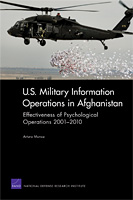Analysis: Spinning Iran and al Qaeda, part 1
Annual Edition: Violence and Terrorism 12/13
Encyclopedia of Peace Psychology
In Defense of the Defenseless: The Morality of the Laws of War
This article takes issue with Jeff McMahan's well-known argument according to which, morally speaking, some civilians and POWs may be liable to wartime attack, and that in this respect the laws of armed conflict prohibiting such attacks diverge significantly from the deep morality of war. I reject McMahan's suggestion that at the deepest moral level it is sometimes justified to violate these legal protections of non-combatants and prisoners.
Read with “Targeting the Populations of Countries that Are at War with the Muslims,” in which Awlaki argued that Islam's prohibition against killing civilians doesn't hold up for modern-day Westerners.
Jonah Lehrer on The Creative Insight of The Outsider
Kingpin: How One Hacker Took Over the Billion-Dollar Cybercrime Underground
Former hacker Kevin Poulsen has, over the past decade, built a reputation as one of the top investigative reporters on the cybercrime beat. In Kingpin, he pours his unmatched access and expertise into book form for the first time, delivering a gripping cat-and-mouse narrative—and an unprecedented view into the twenty-first century’s signature form of organized crime.
Millennial Teenager: A Generation of Digital Natives
Impact of being connected — extend this to the five billion poor.
PTSD now PTSI – Injury not Disorder




